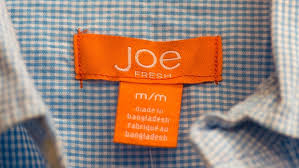 Entrepreneurship in Canada is growing, as 98% of all employer businesses in Canada are small businesses, with 1 116 423 registered small businesses in December 2010. What is specifically compelling is how many small businesses, not only in Canada, but all over the world, are using the consumer to fund their projects. Websites like Kickstarter allow potential buyers of a product to contribute money for this product to go into production. New Zealand brothers Doug Barber and Jimmy Hayes have gained considerable popularity from their innovative travel gear on Kickstarter. The response to the desired products gives the small scale entrepreneurs an idea of exactly what consumers want and then go forth to produce just that, simplifying the process of supply and demand. Similarly, San Francisco clothing company BetaBrand has developed a think tank (Try it out! http://www.betabrand.com/think-tank.html) in which customers help develop the designs of the clothing. They then commit to buying the article and if it receives enough funding, BetaBrand will manufacture it and provide a 30% off discount to the customer for committing their funds. With consumers demanding precisely what they desire, this lowers the barrier between buyers and sellers, allowing for increased mutual benefit in the marketplace.
Entrepreneurship in Canada is growing, as 98% of all employer businesses in Canada are small businesses, with 1 116 423 registered small businesses in December 2010. What is specifically compelling is how many small businesses, not only in Canada, but all over the world, are using the consumer to fund their projects. Websites like Kickstarter allow potential buyers of a product to contribute money for this product to go into production. New Zealand brothers Doug Barber and Jimmy Hayes have gained considerable popularity from their innovative travel gear on Kickstarter. The response to the desired products gives the small scale entrepreneurs an idea of exactly what consumers want and then go forth to produce just that, simplifying the process of supply and demand. Similarly, San Francisco clothing company BetaBrand has developed a think tank (Try it out! http://www.betabrand.com/think-tank.html) in which customers help develop the designs of the clothing. They then commit to buying the article and if it receives enough funding, BetaBrand will manufacture it and provide a 30% off discount to the customer for committing their funds. With consumers demanding precisely what they desire, this lowers the barrier between buyers and sellers, allowing for increased mutual benefit in the marketplace.
Posted below is Doug and Jimmy’s campaign video for their Kickstarter campaign, in which they really try to connect to their consumers:
Sources:
http://www.cbc.ca/news/business/10-surprising-stats-about-small-business-in-canada-1.1083238
http://www.nzherald.co.nz/business/news/article.cfm?c_id=3&objectid=11128769


